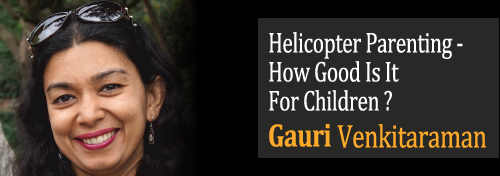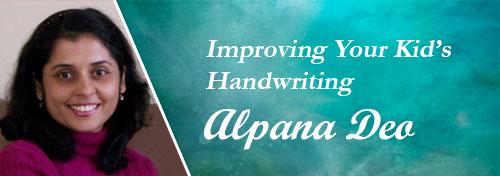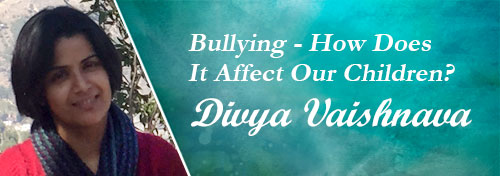Helicopter Parenting – How Good Is It For Children ?
Ever heard of the terms “hyper parenting / helicopter parenting” ? Familiar with the title “tiger moms” ?
While these terms are being used more widely now than ever before and since being a “tiger mom” seems to be in vogue, these tendencies give rise to questions too. The most important question being “Are hyper parents actually giving their kids an advantage in terms of their academic life, social life and other facets of life or are they creating problems for their children which will probably last a lifetime ?”
When one works in the field of education, one does come across and come into contact with hyper parents day in and day out. Parents who push their children towards “excellence”, parents who choose whom their child is going to be friends with, parents who keep their kids cloistered and protected from the evils of the outside world, parents who pack their children’s weekends with classes of all sorts – all in an effort to give them that shade of advantage when it’s time for the child to compete with the outside world.
There are parents who insist that they decide on the seating arrangement of their child in class, parents who insist that they know better as to what needs to be taught and what doesn’t – and this is just the tip of the iceberg. I’ve seen teenage students who are escorted to their classes and back by their parents. I’ve had parents who call their children on their mobile phones during class hours, to keep tabs on them or to tell them what exactly to do next.
The education industry has indeed cashed in big time on this trend of over parenting. One sees all sorts of classes now – baby ballet, baby swimming, baby dance, baby phonics – the list is endless. The other day while on my way to work, I remember seeing flyers being distributed for something called “prenatal reading and phonics classes”. Amazing, is it not ? Yet again, it makes me wonder as to how much of this can be attributed to “social pressure”.
The question that rises to the fore is whether we are actually helping our kids or in effect, making them weak. Are we trying to make our kids independent (which, according to me should be one of the main aims of parenting) or is hyper parenting creating a generation of kids, for whom, being dependent on their parents is the norm – because that’s what they’ve done all their life.
Earlier on, maybe around our own childhood days, the concept of a joint family system was still a prevalent one. There were bound to be many children growing up together. Children would play together, they would fight, there would be fall-outs, there would be make-ups. Some children would be bossy, some would be meek. Either way, some sort of balance would be struck over a period of time. The important thing, however, was the fact that in just interacting with each other without too much of parental intervention, children learnt their own set of social skills.
Children fall down and get hurt but in the process, they learn. They either learn to be more careful the next time or to keep going at something until they master it. Children learn that if they fall down, they need to get up, dust themselves and keep going at something all over again. With helicopter parenting, the exposure that children get to the outside world, is very controlled. It is censored by the parents. These children are brought up being told that they will not fall down and even if they stumble, their parents would be right there for them, holding out a soft mat so that the fall does not hurt. How good is this for the child ? How will children learn from their mistakes if they are never allowed to make mistakes in the first place ?
Fact remains that all of us, as parents do exert a certain amount of control on our childrens’ lives. As I’ve mentioned in one of my earlier posts on Parentous, there are times when each and every one of us has had to stand up for our children in different situations, under different circumstances. It has happened with us too, in the course of this adventure known as parenting. The important thing, the lesson for us parents to take away from all of this, however, is not to overdo things. The balance between protecting and over protecting is indeed very fine. The line is very thin. As parents, we may occasionally end up crossing that line but again, as parents it is a learning process for us too. And learn, we must – for our childrens’ sake.
It is important that we, as parents, learn to let go. I think that’s what it boils down to. Letting go. The root cause of hyper parenting seems to be the inability to let go. As a parent, the innate nature screams and says “protect your child”. But again, I guess we have to learn how and where to draw the line. It is important. Not just for us, as parents but more so for our children, as individuals with their own identities. More importantly, I think by “letting go” (age appropriately), the message that parents send out to their kids is that they trust them and that they deem them responsible enough. This is so very important because trust is a factor which works both ways. It cannot and never will be a one way street.
When one looks at the future of kids who have been “helicopter parented”, it does present a rather scary scenario. There will come a time when this set of “hyper parented” kids become parents themselves. What then ? What will they do ? Will there be a whole new generation of hyper-hyper parents or would they realize the drawbacks somewhere along the way and decide to cut loose when it comes to parenting their own children.
Another pertinent question that does raise its head is “How well would these children cope when they finally have to venture out into the world on their own ? Will they have their coping mechanisms in place ? Will they be able to handle the pressures of the outside world without hanging on to their parents’ coat tails ?”
Like so many other things in life – I guess this too boils down to a single word “balance”. Children do need parental help at times but there are other times, they have to be left alone to fight their own battles. What is needed is a generous helping of trust and confidence in our children, in being able to let them cope on their own without giving in to that innate urge to step in and pave the way for them.
Like Sloan Wilson once said
“The hardest part of raising a child is teaching them to ride bicycles. A shaky child on a bicycle for the first time needs both support and freedom. The realization that this is what the child will always need can hit hard.”
Gauri Venkitaraman dons many hats – a wife, a mom, a teacher and many more. Working as a full-time English teacher in HongKong, Gauri also raises and nurtures two terrors, affectionately known as The Nutty Siblings a.k.a Macadamia, a teen and Pecan, the ten-year old who behaves like he is fifteen. Gauri’s family means the world to her. Life is a lively roller coaster ride and we, as a family, aim to enjoy the ride together. http://tiny-tidbits.blogspot.hk/ is where Gauri pens down her thoughts and musings, in an attempt to preserve memories for posterity


